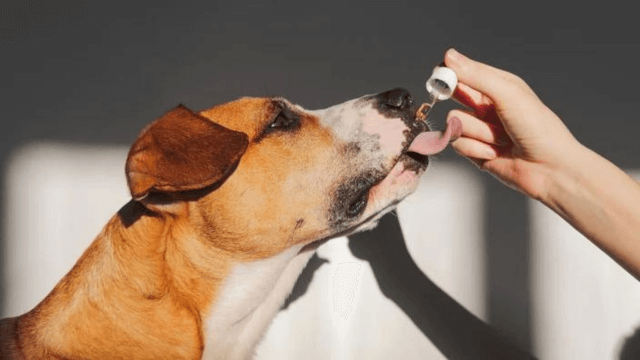Guide to CBD Dosing for Dogs: Expert Tips

The rise in popularity of cannabidiol (CBD) products for health and wellness purposes isn’t limited to humans. Pet owners, especially those with dogs, are curious about the benefits of CBD for their four-legged companions. As with any supplement or medicine, the correct dosage is crucial. Here’s a comprehensive guide to CBD dosing for dogs.
Understanding CBD
CBD is one of the many compounds found in the cannabis plant. Unlike THC, the psychoactive compound often associated with a ‘high,’ CBD is non-psychoactive. It has gained attention for its potential therapeutic properties, including pain relief, reducing anxiety, and alleviating certain symptoms of various conditions.
Why CBD for Dogs?
Like humans, dogs possess an endocannabinoid system (ECS). This system maintains balance within the body. CBD interacts with the receptors in the ECS, which can influence a host of physiological processes like pain perception, mood, and inflammation.
Many pet owners turn to CBD as a natural remedy to address issues such as:
- Pain and inflammation, often due to arthritis or injury
- Anxiety and stress, be it from separation, thunderstorms, or other triggers
- Seizures or epilepsy
- Digestive problems
Determining the Right Dosage
Finding the correct CBD dosage for dogs is essential. Too little might not produce the desired effects, and too much could lead to unwanted side effects. Here’s a general approach:
Weight Matters
Typically, CBD dosing for dogs is determined by the dog’s weight. The general rule of thumb is to start with 1-2 milligrams of CBD per 10 pounds of body weight.
For instance:
- A 20-pound dog might begin with a dose of 2-4mg
- A 50-pound dog could start with 5-10mg
Type of CBD Product
There are various forms of CBD available for dogs: oils or tinctures, treats, capsules, and topicals. Each product might have a different concentration of CBD. It’s vital to read the label and follow any provided guidelines or consult with a veterinarian.
Administering CBD
CBD Oil or Tincture
This is often seen as the most versatile form. It can be dropped directly into the dog’s mouth or added to food.
CBD Treats
These are convenient for many pet owners, but ensure the treat is suitable for the dog’s size and weight.
CBD Capsules
Like treats, they can be given with food, but dosing is more precise.
CBD Topicals
These are creams or balms applied directly to the skin, suitable for localized issues like skin conditions or joint pain.
Observation is Key
After administering CBD, closely monitor the dog’s behavior. Look for signs of positive change, such as increased energy, decreased signs of pain, or reduced anxiety. Conversely, be aware of potential side effects, like excessive sedation, digestive upset, or changes in appetite.
Consultation with a Veterinarian
Before starting any CBD regimen for a pet, consult with a veterinarian. They can provide guidance tailored to the dog’s health needs and ensure that CBD won’t interfere with other medications or conditions.
Conclusion
CBD has the potential to offer numerous health benefits for dogs. However, as with any supplement or treatment, it’s essential to approach with care. By understanding the basics, starting with a suitable dose, and consulting with professionals, pet owners can make informed decisions about CBD for their dogs.






